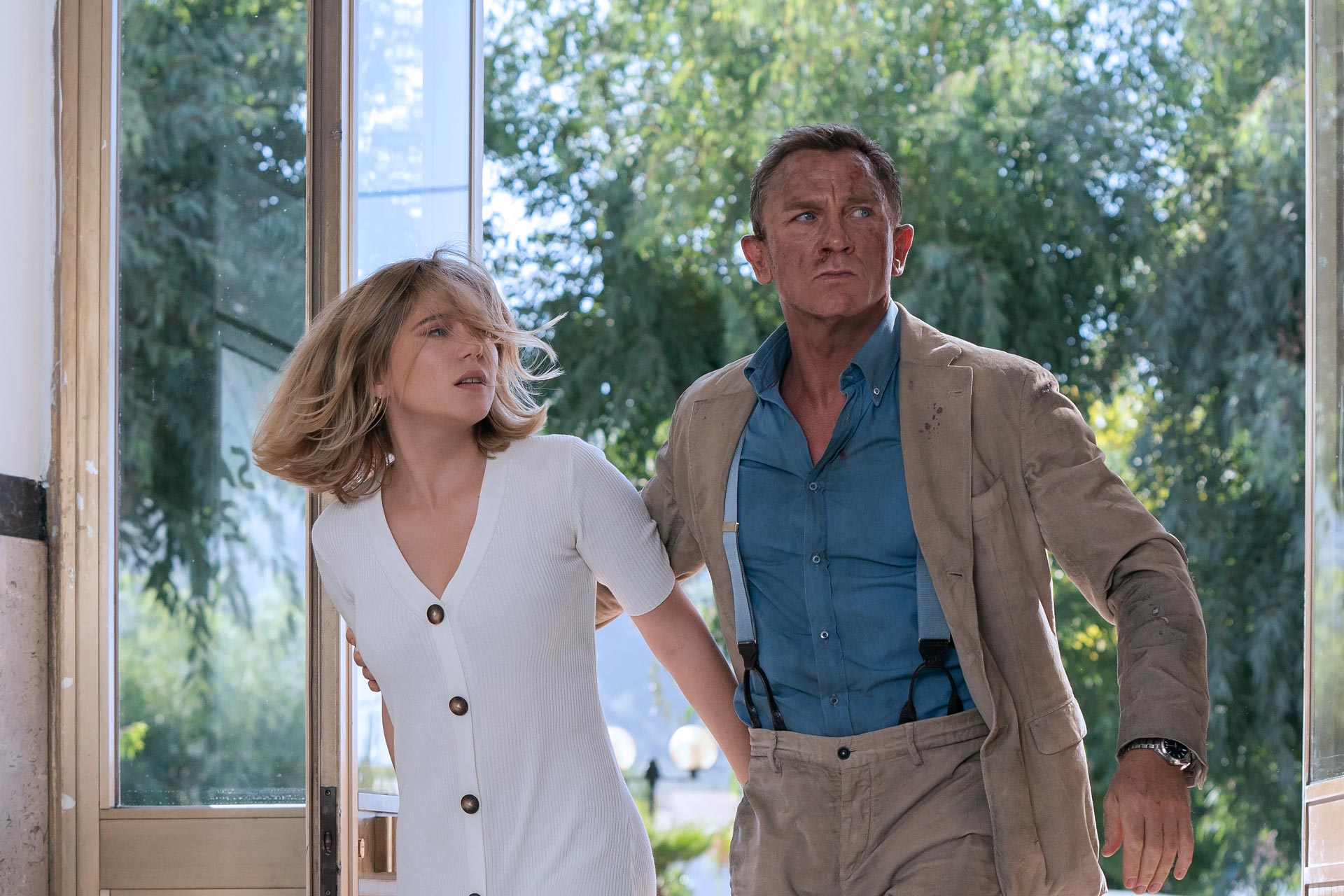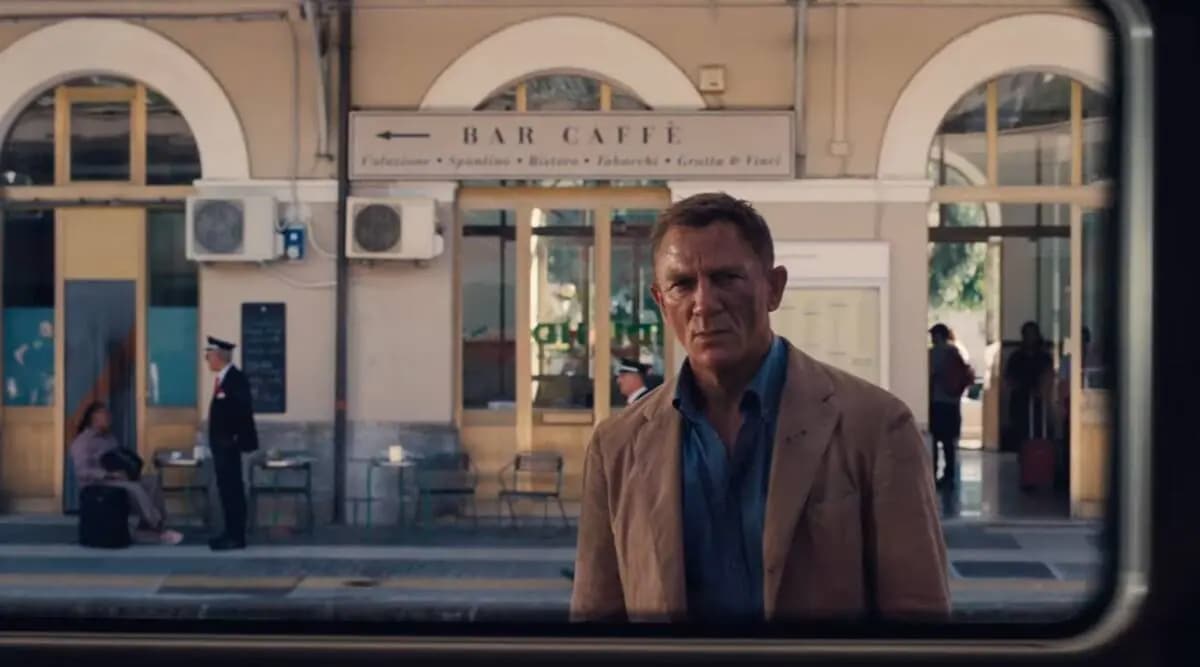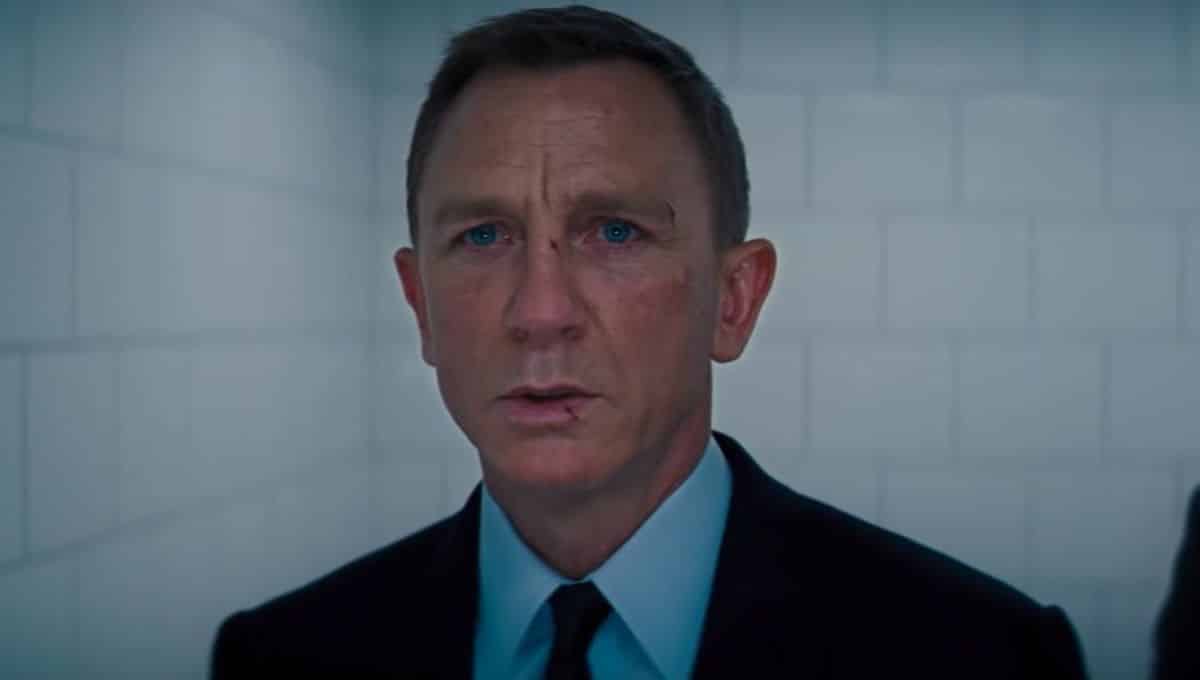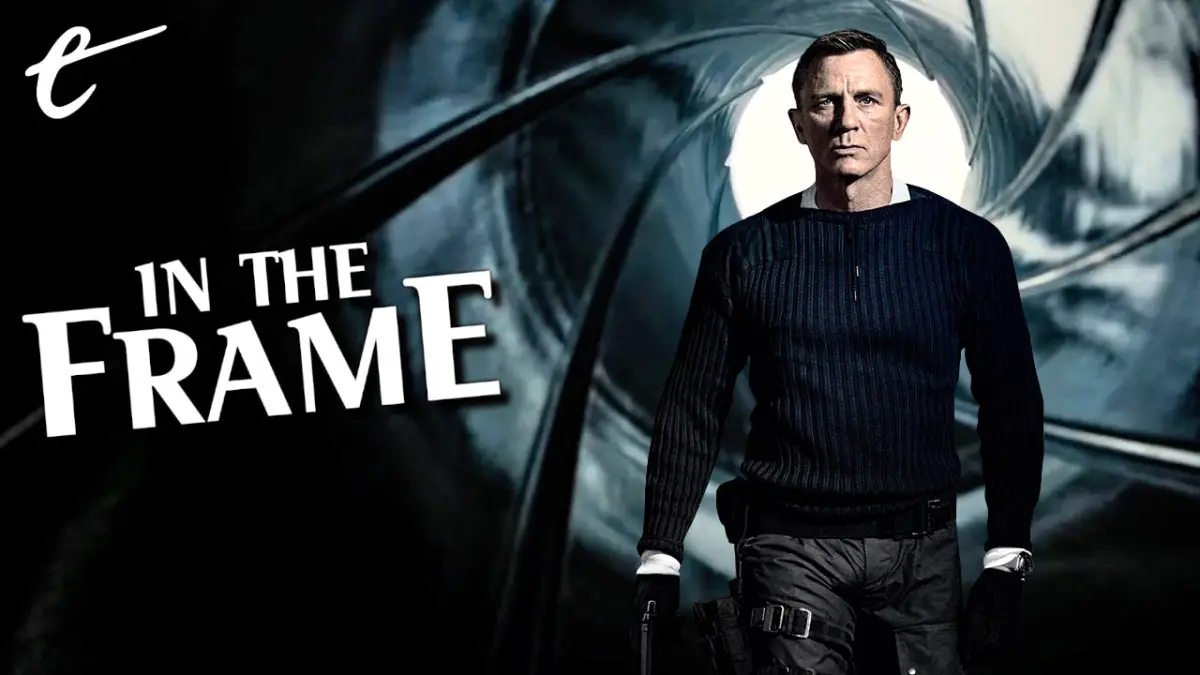There is a palpable insecurity to the most recent James Bond films headlined by Daniel Craig, including No Time to Die. One of the big thematic preoccupations of Craig’s tenure has been the tired old debate about whether a veteran spy like James Bond serves any purpose in the modern world.
Casino Royale reintroduced the character of James Bond as “a blunt instrument” dropped into a world of financial villainy and “shorting of airline stocks.” Quantum of Solace juxtaposed the character’s action-packed journey to the heart of a dark conspiracy with the more mundane realpolitik of the alignment between British and American intelligence agencies and sinister private interests, with Bond’s discovery of a traditional supervillain plan introducing welcome moral clarity.
In Skyfall, the metaphor is more explicit. Bond meets his new Quartermaster (Ben Whishaw) in the National Gallery, looking at Joseph Turner’s The Fighting Temeraire and contemplating a “grand old warship being ignominiously hauled away for scrap.” Following a series of public humiliations and losses under her supervision, M (Judi Dench) is dragged in front of the Intelligence and Security Committee and accused of being nostalgic for a lost “golden age of espionage.”
Spectre continues this trend, as M’s replacement Mallory (Ralph Fiennes) finds himself caught in the middle of “the biggest shakeup in the history of British intelligence.” Max Denbigh (Andrew Scott) has been promoted to the head of a merged intelligence service. Believing that human agents are redundant and that “drones could do all (their) dirty work abroad,” Denbigh advocates for the adoption of a radical “Nine Eyes” surveillance initiative “to scrap the double-0 program forever.”
This theme carries over in No Time to Die, when a daring raid on a top-secret government laboratory reveals that Mallory has been working on his own potential replacement for classic espionage: a set of deadly and programmable nanobots known as “Heracles” that could kill enemies without any collateral damage and without the need for trained agents to pull the trigger. If James Bond weren’t retired by the start of No Time to Die, it seems likely he would be facing redundancy.

In these three most recent films, the alternative to James Bond’s old-fashioned spy craft is presented as monstrous. In Skyfall, the villainous Raoul Silva (Javier Bardem) is a former operative whose skills were more rooted in computer hacking than practical espionage work and whose ambition led him to get captured by the Chinese. In Spectre, Denbigh is ultimately working with the villainous Blofeld (Christoph Waltz). In No Time to Die, “Heracles” is turned into “a weapon of mass destruction.”
Inevitably, Bond is thrown into conflict against these existential challenges to his continued relevance. In Skyfall, Bond is the only person who can protect M from Silva. In Spectre, Mallory and Bond work together to stop “Nine Eyes” from going live. In No Time to Die, Bond personally leads an expedition to stop Lyutsifer Safin (Rami Malek) from unleashing the nanobots upon the world. In each case, Bond wins the symbolic battle — often at a high price. He proves his enduring utility.
There’s something unconvincing about this, particularly as a recurring preoccupation. It feels contrived on a basic character level. In Spectre, Mallory argues with Denbigh over the necessity of the double-0 program, about the value of looking an enemy “in the eye” and having to “make the call,” something that can’t be automated using “all the drones, bugs, cameras, transcripts, all the surveillance in the world.” So it’s a surprise when Mallory embraces “Heracles” in No Time to Die.
This anxiety runs deep, so it’s worth unpacking and exploring. On a basic and literal level within the narrative, this recurring tension is absurd. James Bond has a specific set of skills, and his missions often rely on infiltration and interrogation. They are not skills that can be replicated by hackers, drones, or nanobots. It’s hard to imagine Silva, “Nine Eyes,” or “Heracles” managing to solve the spaceship-kidnapping from You Only Live Twice or the voodoo drug-running of Live and Let Die.

Even discounting earlier entries in the franchise, Casino Royale emphasizes the importance of Bond being able to sit opposite Le Chiffre (Mads Mikkelsen) and play poker. (“You never play your hand,” Bond explains of the game. “You play the man across from you.”) The entire plot of Quantum of Solace hinges on Bond unraveling a vast conspiracy around Dominic Greene (Mathieu Amalric) that is completely hidden from the computers and readouts in Whitehall.
This argument is strengthened by stepping outside the universe of the films. Bond is a fictional character. Leaving aside the occasional unexplained rocket launch in the Pacific Ocean, Bond villains are not a real problem facing the world. The audience is smart enough to know this. They know how a James Bond movie works and have purchased a ticket with the understanding that it is a piece of entertainment. Everybody in a theatre watching No Time to Die has literally bought into the premise.
There are debates to be had about the proliferation of drone strikes in modern statecraft, about the overreach of the surveillance state, and about the implications of artificial intelligence and technological advances. These are genuine issues, and they are worth engaging with. However, Skyfall, Spectre, and No Time to Die aren’t actually engaging with these real-world topics. The conclusion is always that these elements are inherently inferior to a fictional superspy. At the very least, they’d be much less fun to watch.
As such, it seems safe to concede that this existential crisis is not a literal anxiety over the state of the real-world intelligence community. These movies are not making arguments that real-life spies are facing redundancy in the era of automation, because nobody would mistake Bond for a real-life spy (maybe Bond should “learn to code”). Instead, these plots seem tied to a deeper uncertainty about the enduring relevance of Bond as a piece of intellectual property.

These questions about the relevance of Bond as a fictional character make a certain amount of sense in the context of the Daniel Craig era. So much of Craig’s tenure is defined as a reaction to what came before. Casino Royale exists as a strong reaction against the previous film in the franchise, Die Another Day starring Pierce Brosnan. Die Another Day was the twentieth in the official series and had been intended as a huge celebration. It became a spectacular embarrassment.
In The Los Angeles Times, Manohla Dargis noted that the film was “perched uneasily between lingering self-parody and the filmmakers’ clear desire for a Bond vehicle to be taken seriously as an action movie.” In The Washington Post, Ann Hornaday argued that the franchise “was beginning to creak not only with age but with the strain of constant self-one-upmanship.” While acknowledging that he had a great time shooting the movie, Brosnan himself conceded the film was “so ridiculous.”
It didn’t help matters that Die Another Day was released towards the tail end of 2002. This was before superhero films took over Hollywood. Instead, the year’s blockbusters were dominated by spy movies: The Sum of All Fears, XXX, Ballistic: Ecks vs. Sever, Bad Company, Austin Powers in Goldmember, I, Spy, and The Tuxedo. Not all of these were good, but many were aggressively modern and served to make Die Another Day (and the character of James Bond) look like a relic.
The breakout espionage thriller of the year was Doug Liman’s The Bourne Identity. It was cheap, vital, and grounded. It made James Bond look outdated. In The Wall Street Journal, Joe Morgenstern boasted, “There’s no way you’d mistake this for James Bond, and no reason you would want to.” Press coverage for Casino Royale talked about how the character had been reinvented to compete with “modern icons such as Jack Bauer and Jason Bourne”. Director Martin Campbell faced questions about how the Bourne franchise was “going to affect the James Bond films.”

The franchise had faced these challenges before. One of the central tensions of GoldenEye was the question of what it meant to make a James Bond movie in the wake of the Cold War. So it makes sense that Casino Royale would ask what the franchise looked like in the wake of The Bourne Identity and XXX. One of the smartest things about Casino Royale is the way that the film doubles down on Bond as a much more performative sort of spy.
However, Casino Royale was a massive critical and commercial success. Skyfall was similarly lauded and became the first film in the franchise to earn over $1 billion at the global box office. While Quantum of Solace and Spectre were more divisive among fans and critics, they performed well at the global box office. Even adjusted for inflation, Spectre is the fourth highest-grossing film in the series. Meanwhile, occasional rumors of a sequel aside, the Bourne franchise appears to have stalled.
The James Bond franchise is secure. It is lucrative. It is creatively and commercially successful. As such, it is strange that the series seems so preoccupied with asserting its relevance. Skyfall at least approached the subject in a compelling manner, but it has since become an exercise in diminishing returns. By the time the franchise hits Spectre, it’s Denbigh’s sarcastic complaints about “one man in the field” who is “running around out there with his license to kill” that are in need of retirement.
There is much to enjoy about Craig’s tenure as the iconic secret agent, including the franchise’s increased willingness to get introspective. At their best, these five films interrogate what it means to be James Bond in a rapidly changing world with shifting cultural values. Those are questions worth exploring when dealing with a cultural icon, and there’s a lot of drama to mine there. It’s much more compelling than contemplating Bond’s potential replacement by a drone or a nanobot.






Published: Oct 4, 2021 11:00 am